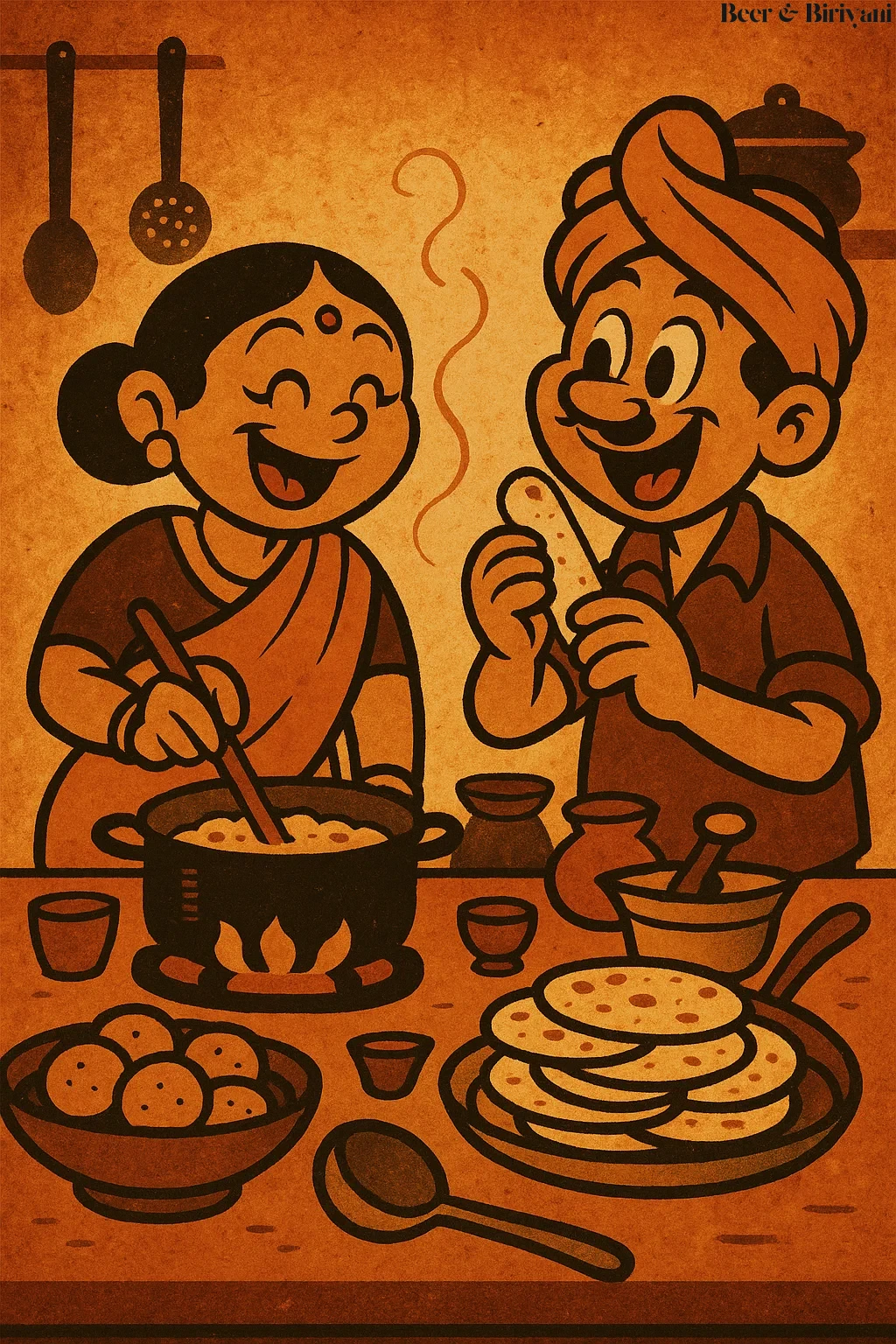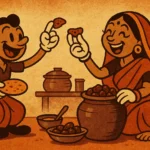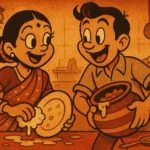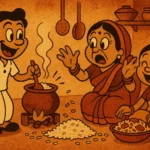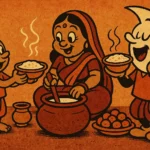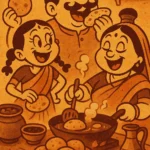When I moved from Mumbai to Austin, I didn’t just pack my bags—I packed years of memories, flavors, and rituals that revolved around the kitchen. Food, to me, has always been more than just sustenance. It’s a language, a form of expression, and, most surprisingly, a way to connect with my own mental health. In the hustle of daily life, it’s easy to forget that some of the most profound therapy happens not in a counseling room, but in the quiet hum of a kitchen. And it’s in the margins of these seemingly mundane moments—chopping onions, kneading dough, stirring a pot of dal—that I began to uncover something deeper about myself.
Cooking has a funny way of revealing truths. It’s like therapy in the sense that it forces you to be present. There’s something about the act of creating a meal that feels like a small meditation—something so deeply rooted in daily life, yet so profoundly personal. It’s an activity that invites both reflection and action. The rhythm of chopping, the sizzle of spices hitting hot oil, the aroma of ghee that fills the air—these are more than sensory experiences. They’re my therapy sessions, disguised as kitchen rituals.
The Comfort of Repetition
One of the most comforting things about cooking is the repetitive nature of it. Whether it’s making roti dough for the hundredth time or the familiar motion of stirring a pot of biryani, repetition offers a soothing rhythm. There’s a calmness in the routine—just like the predictability of a therapy session. No matter how chaotic life gets, I know that the dough will come together, the spices will bloom, and the food will nourish me in more ways than one.
Cooking feels like a meditation for me. I can trace the years of Sunday mornings spent with my mom, watching her knead dough for chapatis, her hands moving with such grace and rhythm. There was no rush in the kitchen. There was time to think, time to reflect, and even time to let emotions stir as much as the curry simmering on the stove. In those moments, I could hear my mom’s voice, but also hear my own thoughts—clearer and less jumbled. Cooking, in its most honest form, is therapy for the mind.
Food as Memory and Healing
It’s fascinating how food can be both comforting and healing. And in many ways, food is my bridge to my past, to my roots, and to the very emotions I sometimes can’t express in words. The rich, spiced aroma of chicken curry or the tangy comfort of a warm bowl of kadhi brings me back to Mumbai. But cooking these same dishes in my Austin kitchen also makes me reflect on how much I’ve grown and how much I’ve healed over the years.
There’s a saying in Indian culture that food is love, and when I cook, I realize how true that is. The act of preparing a meal—whether it’s my favorite egg curry or my mom’s dal fry—becomes a way to care for myself, to heal myself. I’m reconnecting with the parts of me that might have been lost in the hustle of life or clouded by a difficult moment. The way the spices interact, how they warm the dish, it’s like a metaphor for how I’ve learned to deal with my own emotional complexities. Just like the ingredients, my emotions have layers, and cooking is how I allow them to unfold, slowly and naturally.
Cooking as a Form of Self-Care
At first, it seemed odd to me that cooking could become a self-care practice. After all, it’s easy to think of self-care as something that involves pampering—like bubble baths or meditation. But what I’ve realized over the years is that cooking is a powerful form of self-care, especially for those of us who are immigrants or away from home. When I’m cooking, I’m giving myself the time and space to slow down, to engage with the moment, and to take care of my well-being. It’s a gentle reminder that I deserve to nourish myself in every sense.
And let’s be real—cooking Indian food, in particular, is an act of care. Whether it’s the deep simmering of spices in ghee or the delicate layering of a biryani, the attention to detail and patience required is a form of love. In a world that often demands productivity and speed, cooking allows me to reclaim control. It’s my time to pause, step away from external pressures, and focus on something that nurtures not just my body, but also my spirit. Every chop, every stir, is a small act of mindfulness.
The Healing Power of Sharing Food
As much as cooking is personal therapy, it’s also something that brings people together. The joy of sharing a meal, of sitting around the table with friends or family, is irreplaceable. It’s in these moments of shared food that the most profound connections happen. I’ve found that the kitchen is where some of my most meaningful conversations take place—whether it’s about the future or simply about the joy of a good meal. Food opens up the space for stories to be shared, laughter to fill the room, and love to be passed from one person to another.
In Austin, I’ve learned to recreate those meals that bring comfort. I’ve learned how to make kadhi with that same tang and warmth, to make a pot of dal that tastes just like my mom’s, and to make biryani that fills the house with the scent of nostalgia. But these meals aren’t just about recreating the past—they’re about healing, about sharing love, and about creating new memories. And when I share them with friends, I realize that cooking is as much about the people we share it with as it is about the ingredients.
The Connection Between Kitchen and Mental Health
Cooking is more than just an act of feeding the body; it’s about nourishing the mind. The kitchen, to me, has always been a place where I’ve worked through my thoughts and emotions. It’s where I’ve processed grief, joy, and everything in between. The act of cooking becomes a form of self-reflection, of working through what’s happening inside while creating something beautiful on the outside. There’s something therapeutic about the act of preparing a meal, about how the simplicity of ingredients can come together to create something complex and fulfilling.
When life feels overwhelming, there’s something so grounding about making something from scratch—be it a simple curry or an elaborate feast. In these moments, I feel centered. Cooking is my therapy journal, the place where I can reflect, process, and heal. It’s in the kitchen, amidst the sizzle and the spice, that I find peace and connection to both my heritage and my present.
Cooking as a Lifeline
Through the years, I’ve come to appreciate cooking not just for the meals it creates, but for the healing and connection it offers. It’s an act of self-love and care, a way to reflect, to heal, and to share moments with others. Whether it’s the comforting simmer of dal or the joyful chaos of making biryani, the kitchen has become my sanctuary. It’s where I find therapy in the margins, in the routine, in the warmth of the food that nourishes me and those around me.
So, the next time you step into your kitchen, remember: it’s not just about what you cook, but about the time you spend there, the connection you make, and the peace you find. Your kitchen, just like your heart, can be a place of healing.
Born in Mumbai, now stir-frying feelings in Texas. Writes about food, memory, and the messy magic in between — mostly to stay hungry, sometimes just to stay sane.

